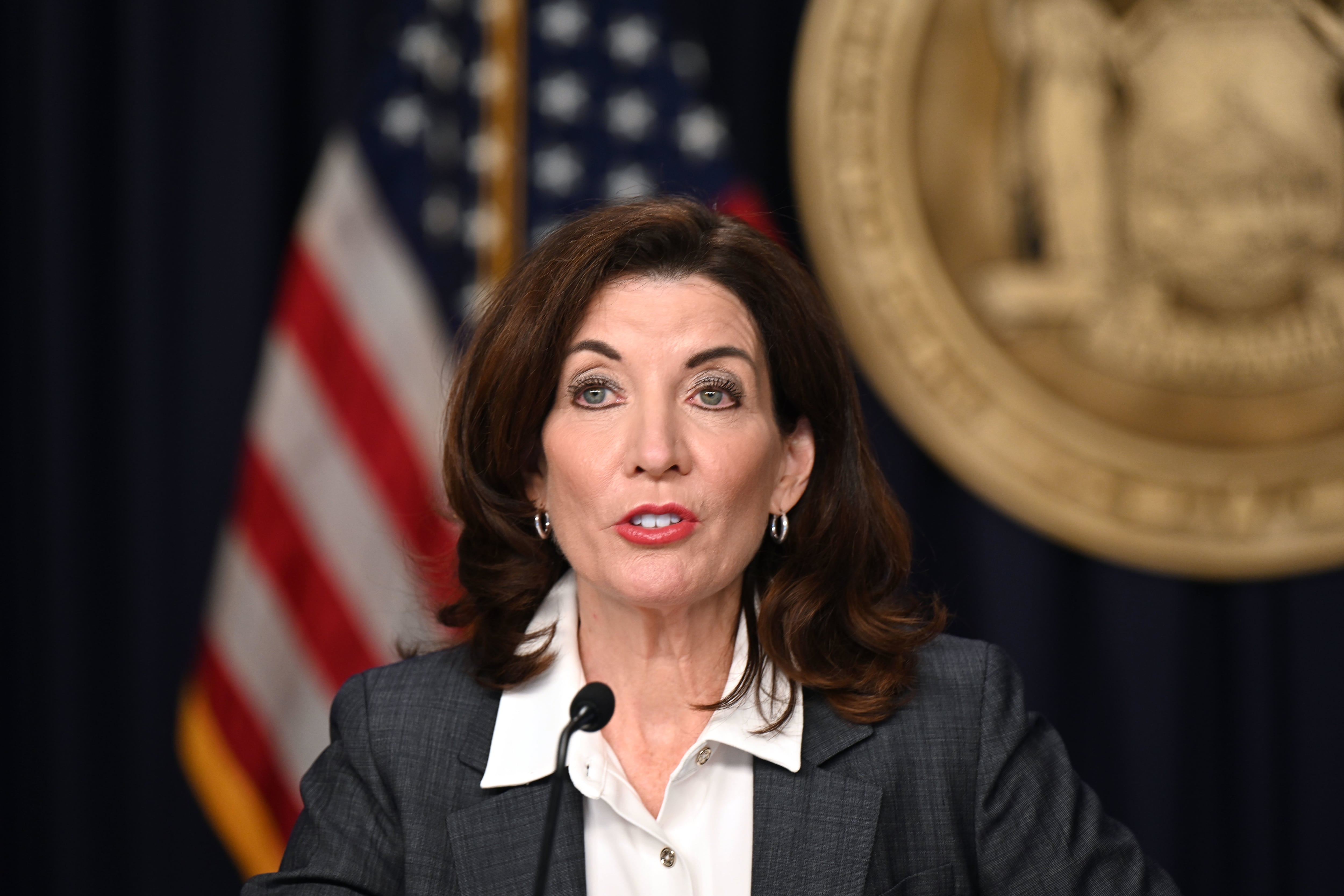Chalkbeat is a nonprofit news organization covering public education in communities across America. Sign up for Chalkbeat New York’s free daily newsletter to keep up with NYC’s public schools.
Gov. Kathy Hochul’s controversial proposal to open more charter schools in New York City is one of the final issues holding up the passage of a state budget, officials said Tuesday.
The budget is nearly a month overdue.
Originally, Hochul wanted to allow more than 100 new charters to open in the five boroughs, by lifting a cap on such schools and releasing “zombie” charters for defunct or never-opened campuses.
After pushback from state lawmakers, Hochul floated a scaled back version, reviving just 22 zombie charter schools for the city, said Sen. John Liu, a Queens Democrat who is the chair of the state senate’s New York City education committee. Half of those zombie charters are located outside of the city, he said.
(Politico reported that the proposal also calls for the state to cover rent for newly released zombie charters.)
Even that proposal has been met with opposition. Hochul told reporters Tuesday that charter schools remain a difficult topic.
“I’m trying hard to overcome the objections, but this is a very challenging issue because of the emotions on both sides of the debate,” she said.
Lawmakers, union officials, and many advocates and families have argued that opening more charters will add to expenses for the city when it should be investing more in traditional public schools, which have lost enrollment. In March, both the Senate and the Assembly officially rejected the proposal.
Charter supporters, who have long pushed for the state to lift the cap in order to expand their footprint, cheered her idea. Hochul has emphasized that she’s attempting to offer more school options to families, including Black and Latino families who are on waitlists for charters.
Overall enrollment in the charter sector has ticked upwards, but it has dropped at many individual schools, including some of the biggest networks. That means opening more such schools could lead to smaller budgets or even closures within the charter sector.
The budget, which was due April 1, has been unresolved for weeks due to disagreements over various hot issues, including bail reform and affordable housing. Charter schools were not a focus of negotiations even three weeks ago, according to both State Senator Shelley Mayer, who chairs the Senate’s general education committee, and Assemblywoman Jo Ann Simon.
In an interview Tuesday, Liu said his committee reviewed Hochul’s new proposal, but it remains “a non-starter.” It would be reasonable “if there were absolutely no charter seats available in New York City,” he said, adding there is “no rationale” for it now.
Reema Amin is a reporter covering New York City public schools. Contact Reema at ramin@chalkbeat.org.







